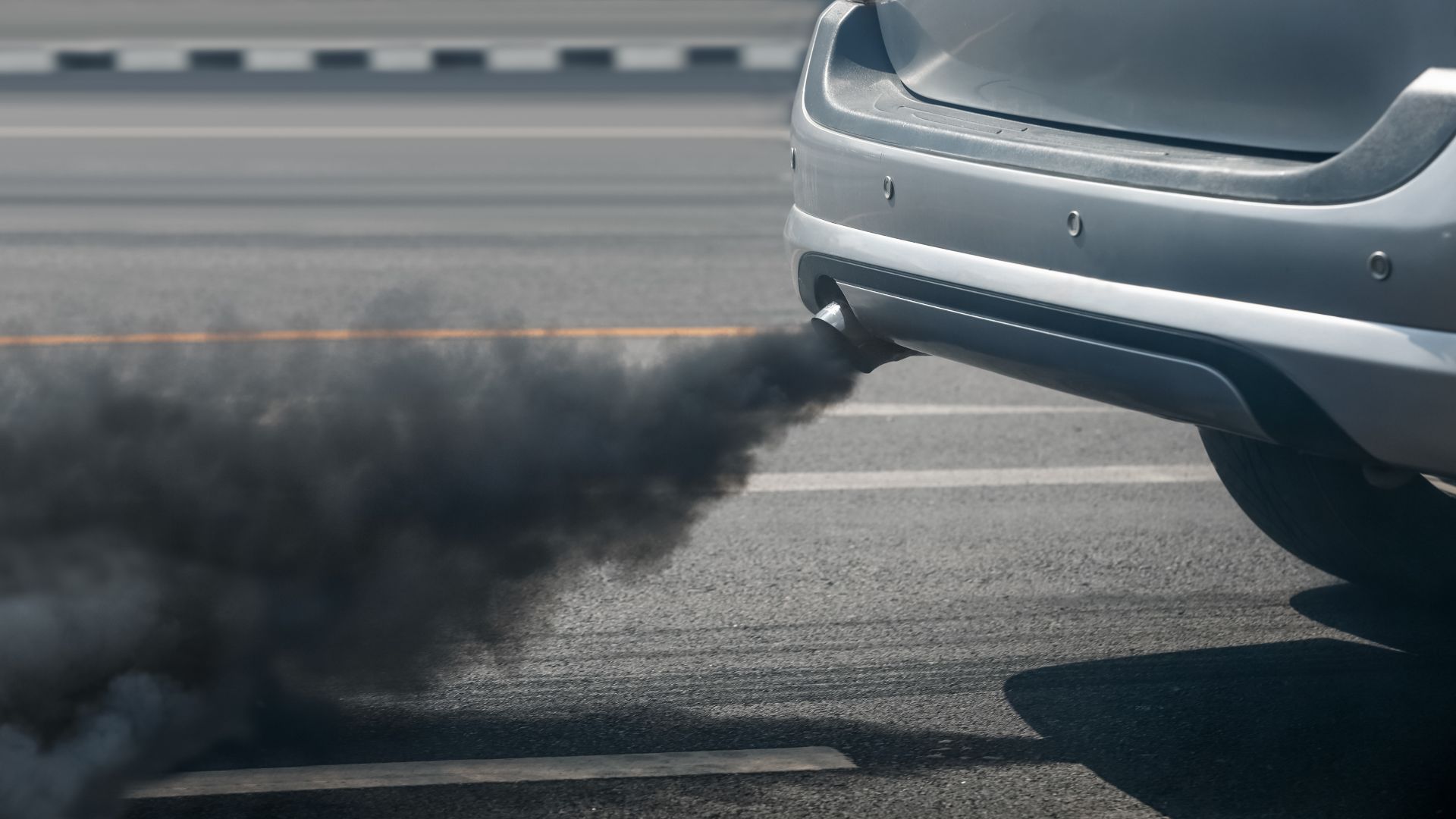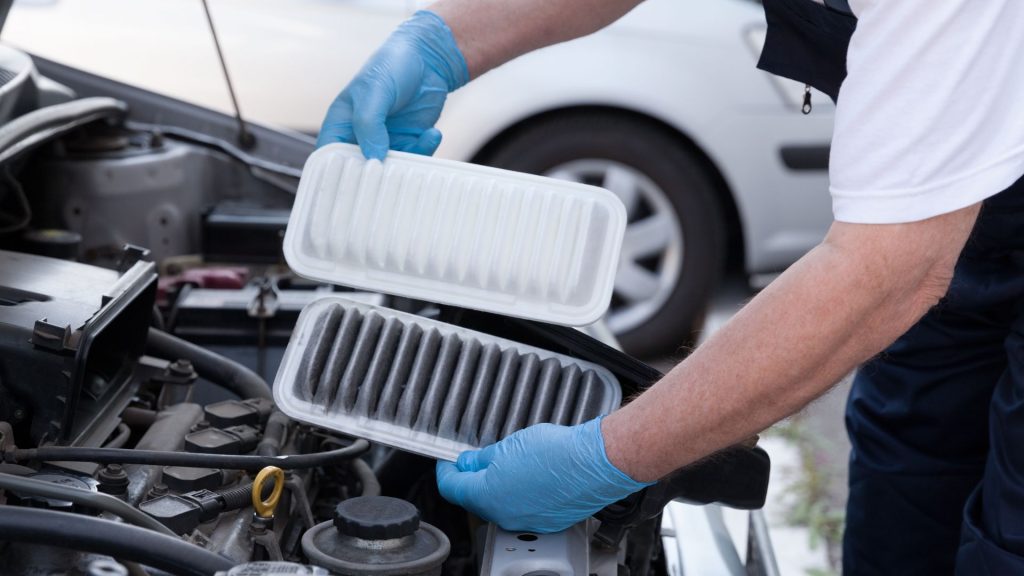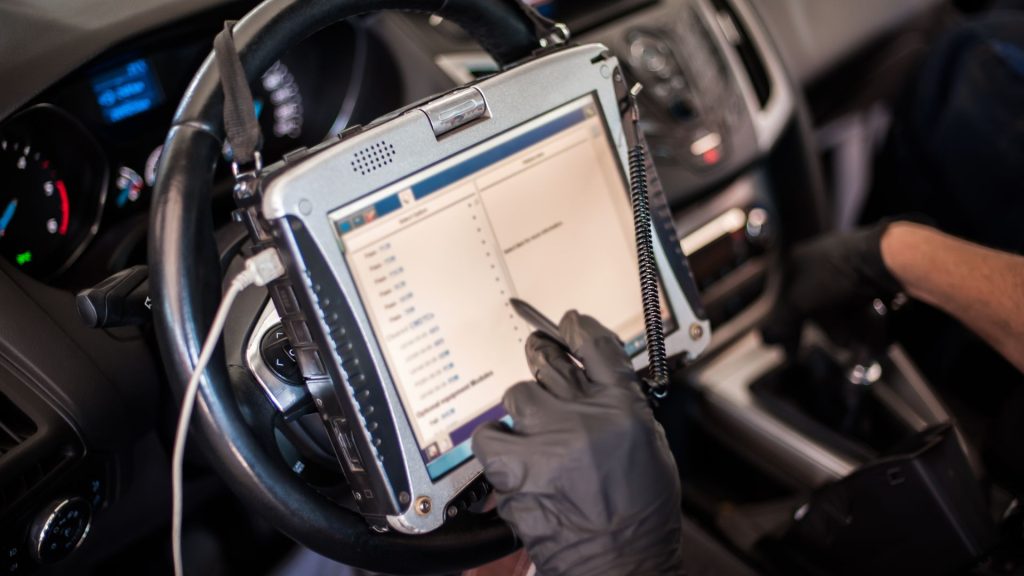Black smoke from the exhaust — causes and fixes
Investigate the reasons behind black smoke coming from your exhaust.

One of the most annoying things in traffic is driving behind a car that bursts black smoke from its exhaust. You probably recall at least a few such situations and the combustion smell coming out of the exhaust makes things even worse.
Sadly, it can happen to everyone, and it might be only a matter of time before you see black smoke from the exhaust of your car. So, what can you do about it? This guide will tell you exactly how to deal with the situation by going over the most common reasons behind it to help you get an easy fix.
Why does black smoke come through the exhaust?
Black smoke coming from your exhaust is a consequence of a rich condition in your engine’s combustion chambers. It means there’s much more fuel than air in the mix, and all that excess fuel causes black smoke.
Some of the unburnt fuel also exits the chambers through the exhaust system of your car, which is why you might also notice fuel drops from the exhaust. The rich air/fuel mix isn’t good for your engine, since it could lead to a carbon buildup in the cylinders.
It also makes it tough for your engine to maintain a proper combustion cycle since the chambers need just the right amount of air/fuel mix. There’s a quick test for a rich condition in your engine’s combustion chambers – simply keep track of the changes in your car’s fuel consumption.
If it starts consuming more fuel than usual, it confirms that the smoke is caused by excess fuel in the chambers. On the other hand, sometimes the fuel amount injected into chambers is just right, but there’s a lack of air passing through the intake.
So, the only way you can fix this issue is by paying attention to the most common reasons behind the black smoke and fixing the malfunctioning part.
Common reasons behind the black smoke

So, now you know that a rich condition problem is causing black smoke to come through your exhaust. This can be due to a faulty component in the fuel delivery system, which adds up to a higher amount of fuel injected.
However, it can also sometimes be a problem with air intake, in case there’s not enough air for proper combustion, and that’s causing excess fuel in the chambers. Still, there are a few other reasons, so here’s a list of the most common triggers of this problem:
- Bad or clogged fuel injectors
- Dirty air filter
- Damaged sensors
- Faulty fuel pressure regulator
- Bad EGR valve
One of the worst things that could happen as a consequence of black smoke is a damaged catalytic converter. Also, if the sensors aren’t the culprit behind the issue, they might go bad as well. Poor combustion mix also leads to poor engine performance and acceleration, so you should deal with the smoke as soon as possible.
Problems with fuel injection
Thanks to the fuel injectors, your engine’s combustion chambers get fuel sprayed directly into them. They are crucial components of fuel delivery systems, and their role is to bring fuel into the chambers at a precise angle.
Especially when it comes to diesel cars, fuel injectors can sometimes get clogged. Without proper fuel injection cleaning, the clogged injectors result in increasing carbon buildup that gets emitted through the tailpipe.
So, that’s the reason leading to black smoke coming out from your exhaust. Also, if the injectors get damaged, more fuel might reach the engine’s inlet valve, causing a rich condition in the combustion chambers. That excess burnt fuel escapes through the exhaust system as black smoke.
Air intake faults
Another common reason behind the could of black smoke escaping through your exhaust is the poor air intake. If there’s not enough air in the combustion chambers, it leads to improper combustion and more fuel getting burned.
This is often caused by a clogged or dirty air filter that needs to be replaced during every oil change on average. However, air filters could go bad even sooner, and the best way of keeping the air that reaches your engine fresh is by frequently checking the air filter.
It’s usually placed in the air intake box and should be white or gray if it’s not contaminated. However, if your air filter appears to be black, it’s probably clogged by dirt and debris and it can harm your engine. Replacing the air filter in this case should get things back to normal with your engine’s combustion, and black smoke should disappear.
Damaged sensors
The air and fuel delivery systems of your car consist of a series of sensors that report back to the engine control unit (ECU). The ECU then communicates with fuel injectors and the air intake system to bring just enough air and fuel into the chambers.
So, bad readings sent by a faulty sensor could lead to a cloud of black smoke exiting through your exhaust. For instance, a bad oxygen sensor could easily lead to black smoke coming through the exhaust. Most cars have two oxygen sensors placed just before and right after the catalytic converter.
They measure the amount of oxygen that exists through the exhaust system, and the ECU uses their readings to adjust the amount of air passing through the intake. So, a sensor malfunction could easily result in a lean or rich condition in the combustion chambers, which could lead to black smoke. The mass airflow sensor also measures the amount of air, only it does so before the intake.
So, both the oxygen sensor and MAF sensor should be checked in case of black smoke coming through the exhaust.
Fuel pressure regulator issues
The fuel pressure regulator controls the fuel pressure in the fuel delivery system. It maintains a proper fuel flow into the injectors and consequently into the engine. A failed fuel pressure regulator is a common reason behind the black smoke.
If it goes bad, it can’t regulate the fuel pressure properly and it could lead to a rich condition in the chambers. It’s worth inspecting this part as well if you notice black smoke from the exhaust. A failed regulator can also result in poor fuel injector performance, so this could be a tricky one to diagnose.
Bad EGR valve
This is a common reason behind black smoke coming from the exhaust of diesel cars. The exhaust gas recirculation valve (EGR) serves to bring back a bit of fuel into the chambers to achieve a proper burning temperature.
If the valve gets dirty or damaged, the temperature gets higher and it leads to higher emissions of pollutants from the exhaust. Since it won’t be able to control the emissions if it fails, this could be the reason for the black smoke you see behind you as you drive.
How to fix the black exhaust smoke problem?

The only thing that remains after checking all the potential reasons behind the black exhaust smoke issue is to fix the emissions problem. The first thing you can do is check and replace the dirty air filter to allow proper air intake into the engine.
Also, you can use fuel additives that clean the fuel injection system, but make sure to use them properly. It’s also worth using the scanner tool to attach it to the OBD2 jack in your car and look for problem codes indicating bad sensors.
You can do most of these yourself without the help of a mechanic, and the final solution is to replace the faulty fuel delivery system components if needed.
Our take
Ultimately, this guide should serve you well in diagnosing the source problem behind the black smoke from the exhaust, and provide some tips on fixing it. It’s not safe for the environment to keep driving like this, due to increased gas emissions.
It’s also bad for your engine due to a bad air/fuel combustion mix, so make sure to fix the problem and ensure clean emissions again right after it occurs.
What causes black smoke from exhaust?
A rich air/fuel condition causes black smoke from the exhaust, which means there’s more fuel in the mix than it’s supposed to. It can be a result of bad fuel delivery components or poor air intake.
Is it safe to drive with black smoke from exhaust?
It’s not safe to drive with black smoke from exhaust due to excess fuel burned in the engine and poor gas emissions exiting through the tailpipe.
How do you fix black smoke from exhaust?
You can fix black smoke from the exhaust by changing the air filter, using fuel additives to clean the injectors, or replacing damaged air intake sensors.
What does black exhaust mean?
Black exhaust means there’s more fuel than air in the combustion chambers, which disrupts the air/fuel combustion mix.